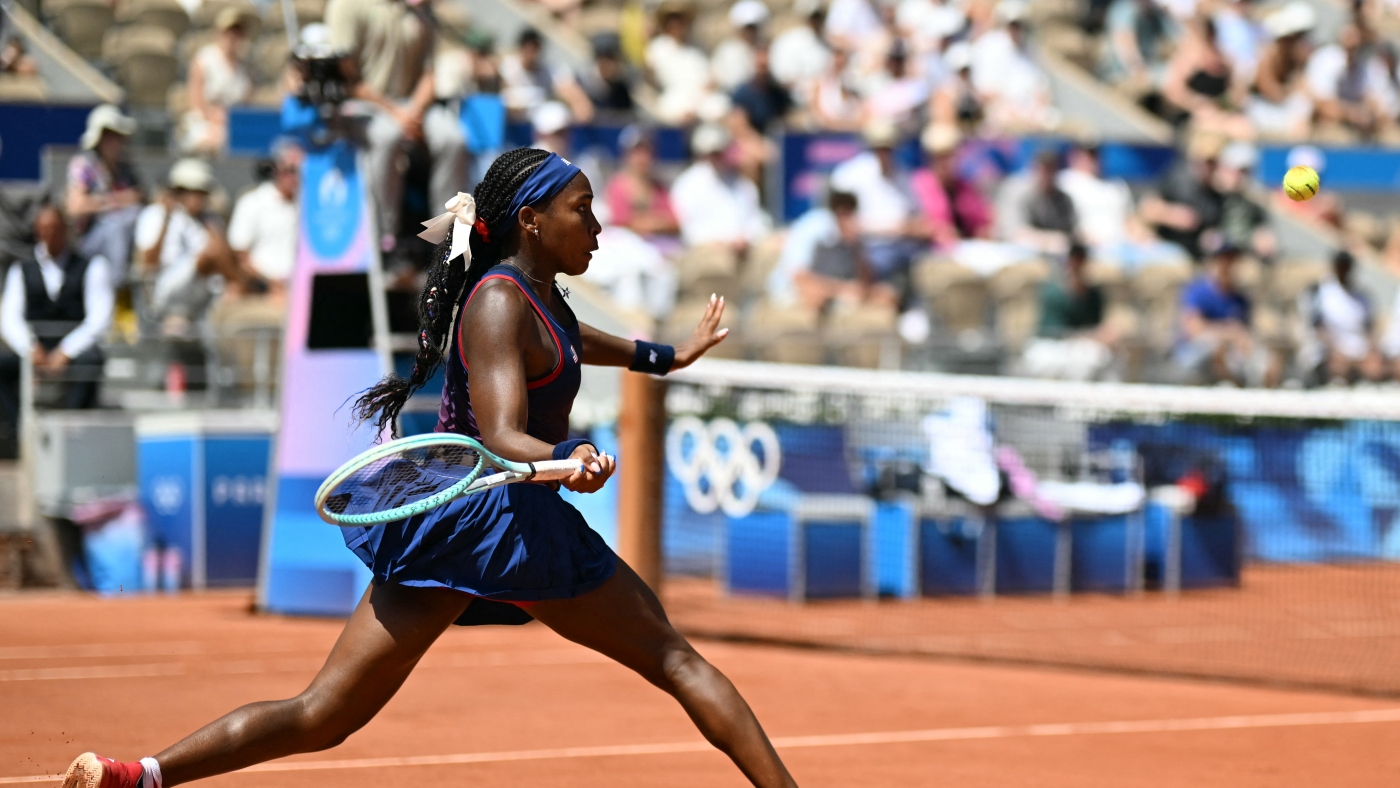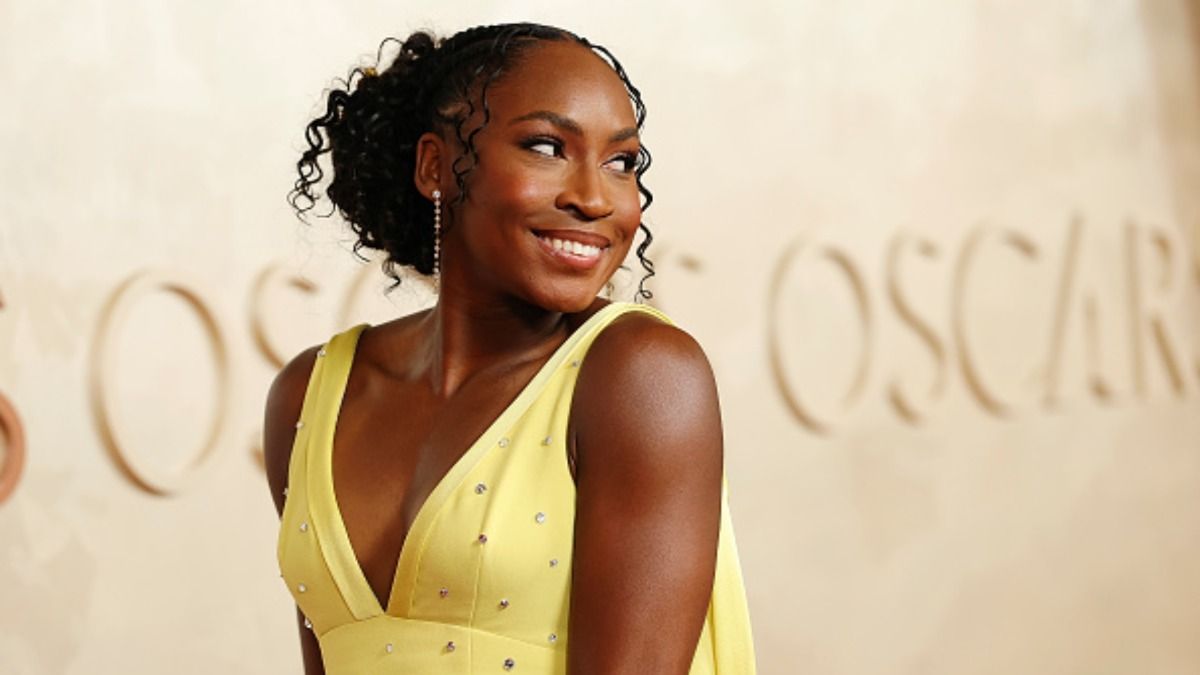Team USA’s Coco Gauff exits Olympics singles tournament with a third-round loss

Coco Gauff hits a return shot to Croatia’s Donna Vekic during their third-round tennis match on Court Philippe-Chatrier at the Roland-Garros Stadium during the Paris 2024 Olympic Games.
Patricia De Melo Moreira/AFP via Getty Images
hide caption
toggle caption
Patricia De Melo Moreira/AFP via Getty Images
NPR is in Paris for the 2024 Summer Olympics. For more of our coverage from the games head to our latest updates.
U.S. tennis star Coco Gauff is out of the women’s singles tournament at the Paris Olympics, after a dramatic straight-set loss to 13th-seeded Donna Vekic — in a match that included an on-court controversy at Roland-Garros Stadium.
Gauff, the world’s No. 2 player, was trailing Vekic 3-2 in the second set after a back-and-forth battle, but any bid for a potential comeback evaporated shortly after chair umpire Jaume Campistol overruled a line call in Vekic’s favor.

Gauff had just served, and a line judge called Vekic’s baseline return shot out at roughly the same time Gauff hit the ball into the net. But Campistol overruled the line call, resulting in a point for Vekic. Rather than deuce, the game went to Vekic, putting her ahead by 4-2.
Gauff then argued that the point should have been replayed, saying that hearing the “out” call had affected her shot. Campistol didn’t agree. The 20-year-old Gauff — who faced a similarly tough situation during the French Open at Roland-Garros earlier this summer — grew emotional as she asked for what she saw as a fair resolution.
“It always happens to me on this court,” Gauff told the umpire, adding later, “I feel like I’ve been cheated on constantly.”

The match was an abrupt turnabout for Gauff. A U.S. flagbearer in Friday’s opening ceremony, she mostly breezed her way through the tournament’s first two rounds. Against Vekic, she had built a 4-1 lead in the first set.
But then Vekic, the Croatian who earlier this month took part in the longest women’s semifinal ever at Wimbledon, got into the fight. She eventually pulled even with Gauff at 6 games apiece to force a tiebreaker, using her forehand and efficient net play to overcome 27 unforced errors in the first set.
Gauff has two more chances to win an Olympic medal in Paris: she’s playing women’s doubles and mixed doubles. After the match, she said she will focus on doubles now.
“I want” Gauff said according to The Associated Press, “to come home with something.”
Known for her composure and confidence that seem beyond her years, Gauff said that while the contested point was important, it might not have changed the outcome of Tuesday’s match. But she repeated a call she made at the French Open earlier this year, saying tennis should follow other sports in implementing a video review system across all competitions.

“I definitely think that at this point it is almost ridiculous that we don’t have it,” she said in June.
The U.S. Open became the first Grand Slam tournament to add electronic line-calling, back in 2006. But officials at Roland-Garros have refused to implement line technology such as the “Hawkeye” system, saying that because of the red courts’ unique conditions (read: dust), human judges and umpires are superior.
Momentum has been building to add video review tools at Grand Slams in recent years: last summer, the U.S. Open installed the systems to test how they performed on some courts.
Related
Danielle Collins prepares gift for Djokovic as she continues at…
Danielle Collins has vowed to gift Novak Djokovic some of her merchandise after the Serb offered his support to the WTA star. Collins hasn’t been afraid to sp
“Second-Guessing Herself”: Jessica Pegula Unpacks the Inspiring Comeback of Newlywed…
What a year this has been for American women’s tennis! We’ve seen plenty of title triumphs, but if asked to single out one big win among those, it’d surel
Coco Gauff rarely gets…”: American tennis legend weighs in on…
A former American tennis superstar has leaped to Coco Gauff’s defense after the 20-year-old phenom faced backlash for her recent Oscars appearance—a glamoro
Novak Djokovic over LeBron James and Cristiano Ronaldo? American tennis…
A former American tennis great has sparked a firestorm in sports debates by declaring Novak Djokovic the greatest athlete of the modern era—surpassing icons l











